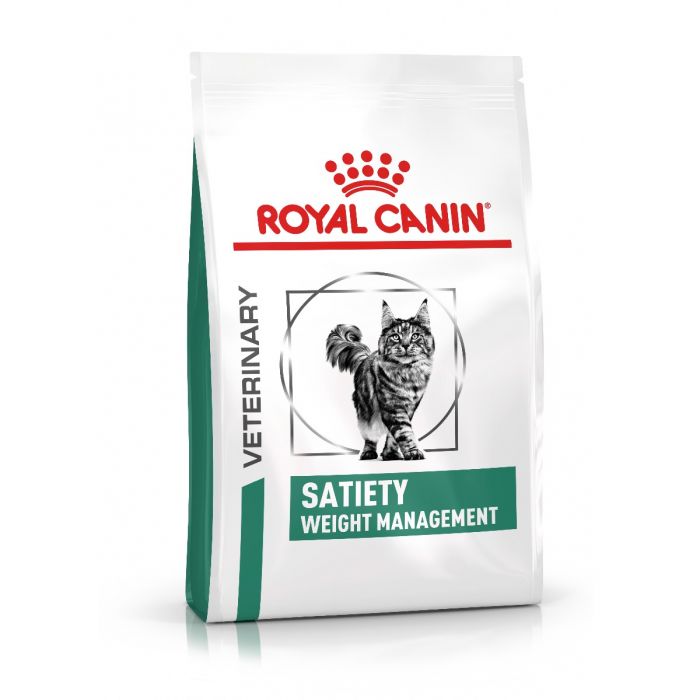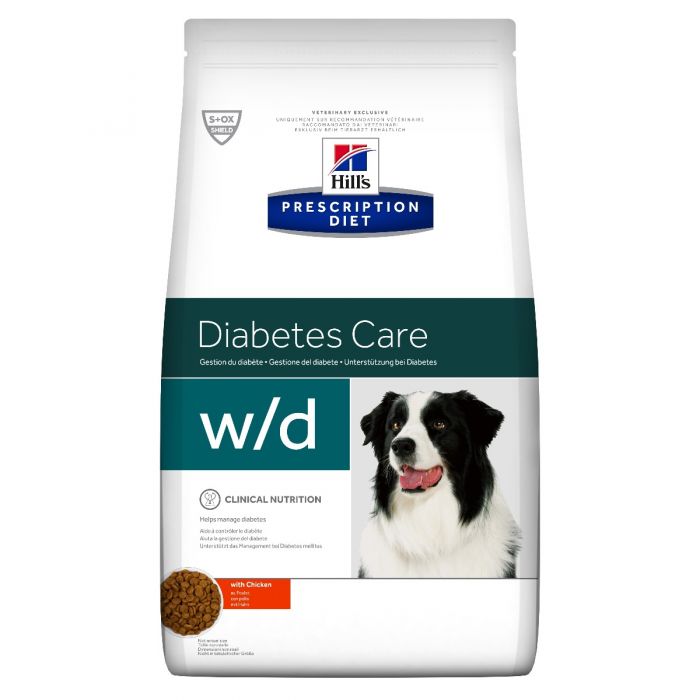Being told by your vet that your cat or dog has diabetes can be very upsetting and worrying. Diabetes is a serious health condition and it’s only natural for owners to question whether they’ll be able to correctly care for their pets at home following a diagnosis.
The good news is, most dogs and cats with diabetes can enjoy a happy and normal life. By managing the condition correctly with prescribed medication and diet, many cats and dogs live for several years after their diagnosis.
How to Treat Diabetes in Cats and Dogs
Following a diagnosis of diabetes, your vet will explain in detail how to manage the condition. Part of this will involve regular administration of the drug insulin.
A diabetic dog or cat will usually need to take insulin once or twice a day. The dose and frequency needed will be communicated by the vet.
What is Insulin and How Does it Work?
Insulin is a hormone that is released from the pancreas in response to blood sugar (or blood glucose) levels rising in the body. It enables glucose to be taken up by cells and used for energy. Without insulin, blood sugar levels can become dangerously high, as the body is unable to absorb it. It’s these continuous high blood sugar levels that lead to the symptoms of diabetes, which can be problematic in the long run.
Diabetic dogs and cats produce ineffective or insufficient amounts of insulin themselves. The treatment therefore involves administering an injectable form of insulin to replace what is normally produced by the pancreas.
How Do I Get My Pet’s Diabetes Medication?
Your vet will issue you with a prescription for your cat or dog’s insulin. You can either obtain your medication from the vet practice, or order the medication online by uploading your prescription.
If you order your cat or dog’s medication from Animed Direct, it will arrive by courier and in special packaging with ice packs to keep it at the correct temperature. You’ll have to be at home to sign for the delivery when it arrives.
Ensure you set regular calendar reminders to order more medication. Always plan to order a little ahead of time, to allow for any possible delays or hold ups. That way you’ll never be without your cat or dog’s medication.
Storing Your Pet’s Diabetes Medication
Once received, you’ll need to keep your cat or dog’s medication in the fridge, between 2 and 8 degrees celcius. Most insulin vials need to be stored within the body of the fridge and in an upright position. This information will be provided by the manufacturer in the medication’s data sheet. Storing diabetes medication at the incorrect temperature will cause it to become ineffective.
Different types of insulin will have different use-by dates once opened. Always read the leaflet provided by the manufacturer if you are unsure.
How to Administer Insulin to a Diabetic Dog or Cat
Traditionally, insulin is administered by injection using syringes and needles. Understandably, this may be the aspect of pet diabetes management that owners feel a little uneasy about. But don’t worry, your vet will be able to give you guidance, and there are a couple of different options available.
Insulin administration options include:
- Using syringes and needles to draw up medication from a vial.
- VetPen® administration. The VetPen® is designed to make administration easier. It is a simpler injection device that uses special cartridges and needles. It’s similar to the insulin pens used by many diabetic humans, but specifically made for pets.
The thought of using needles and syringes can be quite daunting and overwhelming. The VetPen® can provide an easier, more accessible option in these cases.
Benefits of the VetPen®:
- It comes in a pen-inject format that can prove easier to use, and doesn’t involve handling a traditional needle. If you have poor eyesight, arthritic or unsteady hands, the VetPen® may be a better option for you.
- The simple pen-twist/click dosing feature means it’s easier to instruct kennels, catteries or pet sitters who may need to medicate your pet in your absence.
- It’s reusable, and comes in a handy carrying case so you can take it with you.
- The ultra-fine needle means there’s less reaction from pets, helping to minimise stress.
Please note that the VetPen® is only suitable for use with a specific type of insulin. If you are unsure whether it would work for you and your pet, please ask your vet for advice.
Additionally, while the VetPen® starter kit is available to buy without a prescription, it doesn’t include the medication. The cartridges must be obtained separately using a prescription.
Discuss both methods with your vet to help decide which may be best for you. Ensure you’re happy with the process. Your vet will demonstrate how to administer the medication correctly whichever method you choose. Don’t hesitate to contact the practice if you need more advice or help.
To ensure the safe disposal of needles, the vet will also give you a needle disposal bin. Once full, you can hand it in to your vet for safe disposal and swap it for a new one.
Taking Your Pet’s Blood Sugar Level Readings
The management of diabetes is centred around controlling your pet’s blood glucose levels. As part of this, your vet will discuss the measurement of your pet’s blood glucose levels. This may involve bringing your pet into the surgery for this to be done, or your vet may discuss home measurement methods if you are comfortable. Each case is different, depending on the individual pet, their condition and their owner.
If you decide to take glucose readings yourself, some home measurement options include:
- Urine glucose detection kits which come in strips of 50
- Blood glucose detecting kits which are designed specifically for animal blood samples
The Alphatrak2 blood glucose system is specifically calibrated to measure blood glucose in dog or cat blood samples. It’s easy to use, portable, and works on the smallest of samples (a tiny prick on the ear, for example) so it’s not too stressful for pets and owners. It enables owners to easily keep a diary of readings which they can take to their vet appointments. This helps the vet to ensure the correct doses of insulin are being administered.
The urine and the blood testing kits and their accessories don’t require a prescription. However, talk to your vet about whether regular at-home monitoring is something you should be doing for your particular pet.
Veterinary Diets for Diabetic Cats and Dogs
As well as regular medication, diabetes in dogs and cats is also managed through diet. Once your pet has been diagnosed and is stable, your vet may recommend a special veterinary diet.
Diabetic diets are usually high in protein and low in fat to help manage a diabetic pet’s energy needs, and high in fibre to help control the increase in blood glucose after a meal.
Specialist veterinary diets are available without a prescription. They can be purchased directly from your veterinary practice or from a pet food supplier. However, never switch your pet over to a veterinary diet unless your vet has recommended it.
Wherever you buy your veterinary diet from, ask your vet for advice as to how you should switch your pet’s diet over. Depending on the food and the pet, your vet might advise you to switch them over gradually.
It’s also important to have regular mealtimes and food quantities with diabetic diets. Your vet will discuss this with you and how it fits in with their insulin injections. It’s also important to note that diabetic pets should not have snacks.
Wrapping Up: Managing Diabetes in Dogs and Cats
A diabetes diagnosis for your pet can be a stressful event, bringing about a lot of changes. Your veterinary practice should always be your first port of call when it comes to advice, medication and diets to help you and your pet to manage the condition. Your vet will also let you know which symptoms to monitor. Always let your vet know straight away if anything changes or you notice any new or unusual symptoms. Remember, many diabetic pets have a very good quality of life, especially with the newest treatment options available.
Blog checked by Karin Volker, MRCVS
Animed Direct offers prescription medication and specialist food to help manage diabetes at competitive prices. Simply upload your valid prescriptions to order, and we’ll deliver them straight to your door.






